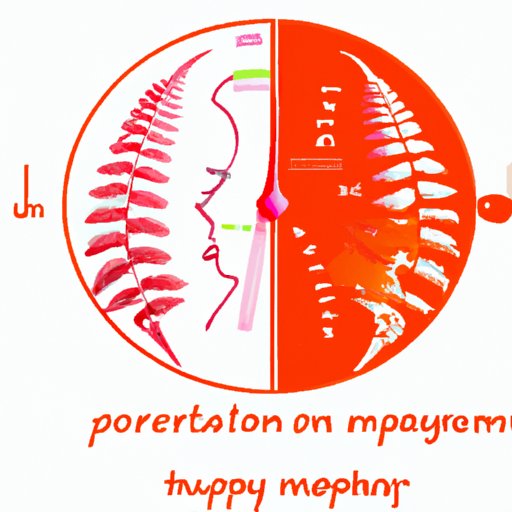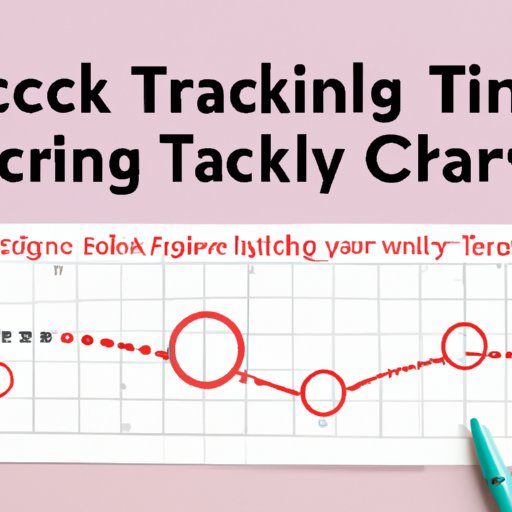
Introduction
Understanding your menstrual cycle is crucial when it comes to conceiving. One question that many women have is whether it is possible to get pregnant a week after their period. In this article, we’ll explore the science behind it and provide helpful tips for women trying to conceive.
Fertile Window: Understanding Your Chances of Conceiving a Week After Your Period
The menstrual cycle typically lasts for 28 days, starting from the first day of your period. During this time, hormonal changes occur in your body that prepares it for pregnancy. The fertile window is the period during which a woman is most likely to conceive. It usually happens between the 10th and 14th day of the menstrual cycle.
While it’s rare to conceive a week after your period, it is still possible in some cases. The chances are relatively low, but they can also vary depending on the length of your menstrual cycle.

Tracking Your Cycle: Tips for Women Trying to Conceive
Several methods can help women track their menstrual cycle and identify their fertile window. One such method is fertility awareness, which involves monitoring the signs and symptoms of ovulation, such as basal temperature, cervical mucus, and hormone levels.
Ovulation predictor kits and fertility tracking apps are other methods that can help women identify their fertile window. However, these tools may not be accurate for everyone and can sometimes lead to false positives or negatives.
The Importance of Understanding Your Body for Conception
Understanding your menstrual cycle and the nuances of your reproductive anatomy is essential when it comes to conception. Your menstrual cycle is driven by complex hormonal changes, and being familiar with these changes can help you identify your fertile window and maximize your chances of conception.
Keeping track of your basal temperature, cervical mucus, and other signs and symptoms can provide vital clues about when you’re ovulating and when it’s the best time to have intercourse.
What You Need to Know About Sperm Survival Rates to Get Pregnant
During intercourse, sperm can survive inside the female reproductive system for up to five days. For pregnancy to occur, sperm must reach and fertilize an egg during the fertile window. However, several factors can affect the quality and quantity of sperm, making conception more challenging.
Factors such as age, lifestyle, and health conditions can impact sperm count and survival rates. Sperm quality is essential for conception, so making healthy lifestyle choices such as eating a balanced diet, getting regular exercise, and avoiding smoking and alcohol can increase the chances of successful conception.
Can You Get Pregnant A Week After Your Period? The Risks and Possibilities
As mentioned earlier, it is possible to conceive a week after your period, but the chances are relatively low. The likelihood of conception increases as you approach your fertile window. However, if you have a short menstrual cycle, conception during a week after your period is more likely.
Several factors can also impact conception, such as age, health conditions, and lifestyle choices. Women who are struggling to conceive should seek medical advice from a healthcare provider to identify any underlying issues that may be affecting fertility.
Pregnancy After Your Period: When to Worry and When to Relax
If you have an irregular menstrual cycle, it can sometimes indicate an underlying health condition that may be affecting fertility. Conditions such as polycystic ovary syndrome (PCOS) and endometriosis can affect fertility and require medical treatment.
However, many women with irregular periods still go on to have healthy pregnancies. If you’re struggling to conceive, it’s essential to seek medical advice to rule out any underlying issues that may be impacting your fertility.
10 Tips for Boosting Fertility During the Most Fertile Time of the Month
Several lifestyle changes can help boost fertility during the most fertile time of the month. These include maintaining a healthy weight, eating a balanced diet rich in nutrients, getting regular exercise, and reducing stress.
Avoiding alcohol, smoking, and recreational drugs can also boost fertility. Be cautious about over-the-counter supplements, as some may interfere with fertility treatments or have potential side effects.
Conclusion
Understanding your menstrual cycle and fertile window is vital when it comes to conceiving. There are several methods for tracking your cycle, and making healthy lifestyle choices can increase the chances of successful conception.
If you’re struggling to conceive, seek medical advice from a healthcare provider to rule out any underlying medical issues that may be affecting fertility. Remember to be patient and keep track of your menstrual cycle to increase your chances of success.





